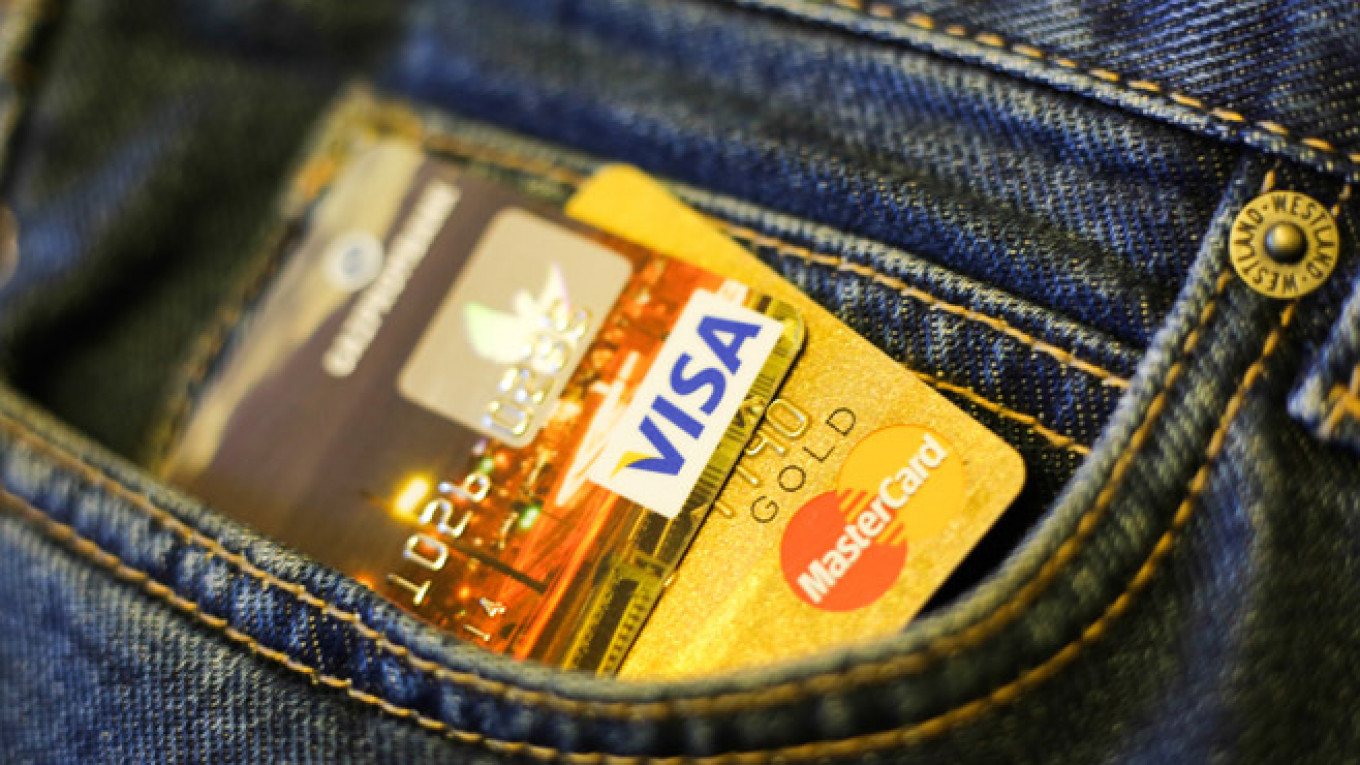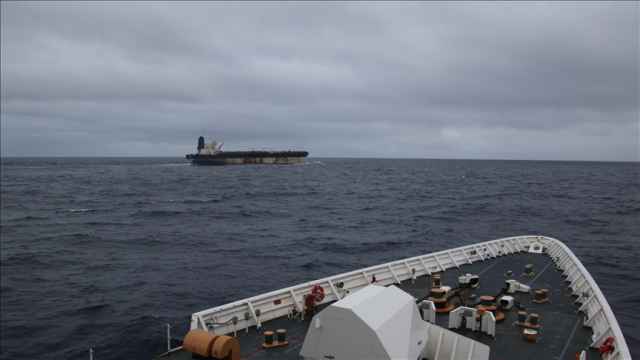International payment systems Visa and MasterCard could get a reprieve until Oct. 31 on a security deposit of up to $2.9 billion that the Russian government has demanded they pay if they are to continue operating in Russia.
According to a draft bill by the Finance Ministry published Wednesday on the government's legislation portal, payment systems operating in Russia can be freed from the obligation to pay a security deposit until Nov. 1 this year — on one condition. To receive the exemption, the companies will need to stop providing information about money transfers carried out in Russia to clearing centers abroad.
The Federation Council on Wednesday approved a bill giving the government the right to set the details for Visa and MasterCard's payment of the security deposit, Vedomosti reported.
Visa and MasterCard, who together process about 90 percent of payments in Russia, fell victim to international tensions in March after they cut services to two Russian banks in order to comply with U.S. sanctions imposed following Russia's annexation of Crimea.
President Vladimir Putin soon after called for the creation of a national payment system to cut Russia's dependence on companies subject to the political policies of foreign governments. Signed into law in early May, the legislation also requires international payment systems to submit a massive security deposit to Russia's Central Bank in order to continue operating in Russia.
The deposit, estimated by Morgan Stanley at $2.9 billion, is five times more than Visa and MasterCard's joint annual revenues in Russia — a country that accounts for less than 4 percent of the companies' global revenues — and analysts suggested that the two companies might be better off simply leaving the market altogether. Under the law, the payment systems would also have to build processing centers in Russia and pay fines of up to 10 percent of the funds held by the Central Bank in the event of a unilateral denial of services.
The State Duma last week began discussing amendments to soften the law, and First Deputy Prime Minister Igor Shuvalov said that the deposit payments will be "substantially reduced."
MasterCard meanwhile said that it was looking for a Russian partner to process payments within the country, which could help the company sidestep the law. Visa, however, said that the requirement to pay the massive security deposit is "unworkable," Reuters reported.
See also:
MasterCard Looking for Russian Partner to Avoid Billion-Dollar Security Payment
A Message from The Moscow Times:
Dear readers,
We are facing unprecedented challenges. Russia's Prosecutor General's Office has designated The Moscow Times as an "undesirable" organization, criminalizing our work and putting our staff at risk of prosecution. This follows our earlier unjust labeling as a "foreign agent."
These actions are direct attempts to silence independent journalism in Russia. The authorities claim our work "discredits the decisions of the Russian leadership." We see things differently: we strive to provide accurate, unbiased reporting on Russia.
We, the journalists of The Moscow Times, refuse to be silenced. But to continue our work, we need your help.
Your support, no matter how small, makes a world of difference. If you can, please support us monthly starting from just $2. It's quick to set up, and every contribution makes a significant impact.
By supporting The Moscow Times, you're defending open, independent journalism in the face of repression. Thank you for standing with us.
Remind me later.






